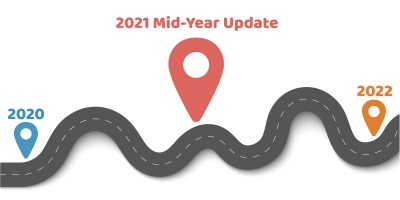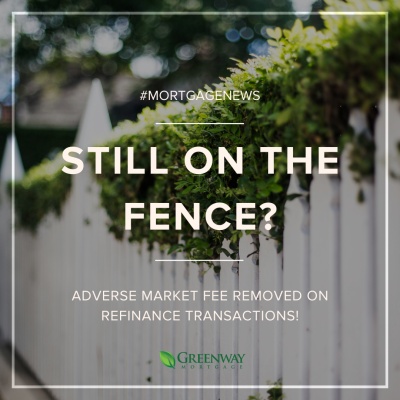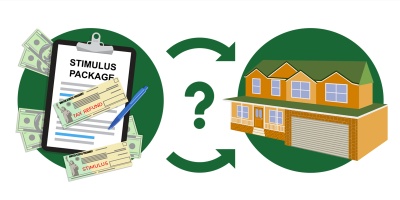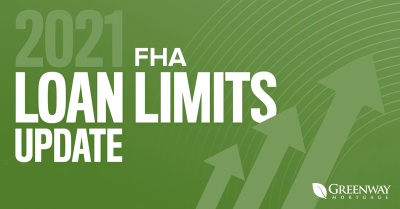
Homeownership Is Possible with Student Loans: New FHA Guidelines

If student loans are keeping you or someone you know from homeownership, help may have arrived.
The Federal Housing Administration (FHA) has changed the way student loan payments are counted when determining eligibility for federally insured mortgages.
How Does FHA Look At Student Loans?
The change is particularly helpful for student loan borrowers who are on an income-based repayment plan; whose loans are in an approved deferment or forbearance; or whose loans are not fully amortizing.
Previously, lenders were required to count 1% of the outstanding student loan balance toward monthly debt payments in those situations. That amount has been cut in half or even more in some cases.
If you or someone you know was previously unable to finance a home because your student debt load was deemed too high, let’s try again. Let's see if we can get you into the home you’ve always wanted.
Contact us today to get the process started or to learn more about these changes and how they could benefit you.
Greenway Mortgage's 2021 Mid-Year Update

Just wait until you see what’s happening in 2021!
2020 may have been the year of “unprecedented” everything, but when it comes to the housing market, 2021 already has it beat.
And we mean that in the best possible way. Let's take a look...
-
House prices are rising at record rates. The Federal Housing Finance Agency's most recent House Price Index report showed an annual growth rate of 15.7% and monthly rate of 1.8% for April—both passing previous highs. For current owners, the changes mean higher home values and equity.
-
Interest rates are back down again. After flirting with an upward trend early in the year, interest rates have come back down. Lower rates contribute to continuing affordability even as prices rise.
-
New programs are opening more doors:
-
The FHA paved the way to homeownership for many more student loan borrowers by changing the way student loan payments are counted when determining eligibility for federally insured mortgages.
-
New programs coming online this summer are helping eligible lower income borrowers save money through refinancing by reducing costs and making it easier to qualify.
-
-
Homeowners are accessing cash from equity and dropping mortgage insurance (MI or PMI). Even for those who already refinanced once, the combination of rising values and low rates is allowing homeowners to fund repairs or renovations; invest in second homes; pay for college tuition; or just follow their dreams.
All of this, and the year’s barely half-way over!
Do you have questions about what the 2021 housing market means for you or someone you know? Please reach out. The Greenway Team is happy to help!
Adverse Market Fee Removed On Refinance Transactions

Regulators Move to Make Refinancing a Reality for More Homeowners
Some homeowners have delayed refinancing their homes because of an "Adverse Market Fee" imposed by Fannie Mae and Freddie Mac at the end of 2020.
That fee, which drove up the cost and/or rate of a refinance, has now been removed and has the potential to save homeowners thousands of dollars.
Have you been on the fence about a refinance? Now may be the right time to move forward to get a lower rate or take cash from your home's equity to consolidate debt or move on other projects.
If you refinanced more than six months ago, recent increases in home values, continuing low rates, and the removal of the adverse market fee may mean you can save even more on your payment and/or access additional cash from your home’s equity.
For complete details, to discuss your scenario or to get the process started, please reach out at to us today by clicking here.
How Can Your Stimulus Check or Tax Refund Help You Buy Your Dream Home?

With stimulus and tax refunds hitting bank accounts, now's a great time to talk about a new home.
Here are ways the extra cash from your stimulus check or tax refund can help with a home purchase:
- Enhance or establish a down payment fund.
- Secure a lower interest rate (which can help you qualify for a higher priced home).
- Pay down or eliminate consumer debt (which also can help you qualify for more).
- Satisfy cash reserve requirements for your purchase.
With some loan programs offering low or even no down payments, you may be able to get into a home sooner than you thought!
Before you take any action toward a new home purchase, please reach out to the experts at Greenway Mortgage.
Sometimes paying off that debt helps, and sometimes it’s better to have the cash on hand. Let’s look at your particular scenario to see the options available to you.
FHA Increases Loan Limits for 2021

The Federal Housing Agency (FHA) has just increased the amount of money that can be borrowed through its mortgage programs by nearly $25k in most areas. In high cost locations, the increase is even greater. New limits will take effect in 2021.
The increases will allow more borrowers to take advantage of FHA’s benefits:
- Low down payment options
- Lower total cash-to-close requirements with gift or seller contributions
- More lenient and streamlined refinancing
- Ability to combine purchase and rehab financing
- In some high-cost areas, higher loan limits than conventional mortgages
Here are the specifics:
- In most areas, the FHA loan limit will be $356,362, a 7.4% increase over 2020’s limit of $331,760.
- In high cost areas, the limit moves to $822,375, a 7.4% increase over 2020’s $765,600.
- In some lower-cost areas or those with higher costs of construction, limits will vary.
Contact your Greenway Mortgage loan officer today for more details about how the increase can impact you.

.jpg)


.jpg)


.jpg)